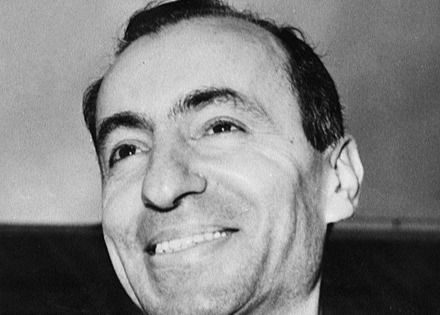
By Emilia Kohlmeyer
November 30, 2022
Michel Alflaq’s Baathism is difficult to recognize in contemporary Baathist ideology that still occupies Syrian and Iraqi thought. However, neo-Baathism finds its roots in the ideas of the Syrian intellectual Michel Aflaq, who inspired generations of anti-imperialist revolutionaries and radicals.
Michel Aflaq was born to a middle-class Greek-Orthodox family in Damascus. He received western education during his childhood under the French Mandate and later studied on a scholarship at the Sorbonne. His politics were strongly influenced by the instability Syria experienced during the Great Syrian Revolt of 1925 and post-WWII Europe, which brought uncertainty to the Middle East.
During his time in Paris, he first interacted with ideologies such as communism, Marxism, socialism and nationalism. He formed the Union of Arab students, which called for the decolonization of Arab lands. Upon his return to Syria, Aflaq and Salah al Din al Bitar, a Sunni Muslim, co-founded the Baath “renaissance” party, which would extend to many other Arab countries, most notably Iraq.
Michel Aflaq’s principles are embodied in the Baathist slogan, “unity, freedom and socialism.” Aflaq’s quest for unity stems from his conception of the Arab nation. The essence of the Arab nation unveils itself through an eternal Arab revelation, which experienced its last rise when Islam unified the Arab world. The Arab nation is primarily bounded by its common language, which Aflaq regards as its primary source of social norms and perception.
Restoring the glory of the Arab world, in his view, was only possible by a complete structural transformation achieved only through a revolution, “inqilab,” on the foundation of nationalism and socialism.
Nationalism, as an ideology, was to be the key vehicle in unifying the lower classes against the political elites. Aflaq, a Greek Orthodox Christian, pursued a secular pan-Arab nationalist vision, which regarded religion as a force of division within the Arab nation. However, he regarded Islam by its “intense moral” nature to have inspired Arabs to “break through their entrenched reality,” as he outlined in a lecture in 1943. According to him, Islam represents an innate part of Arab culture, and he asserted that “Islam was an Arab movement. Its meaning was Arab renewal and its perfection. So the language that Islam descended with was Arabic. Its outlook and understanding were of an Arab mind. The qualities it encouraged were apparent or hidden Arab values, and the faults it addressed were faults the Arabs were to vanquish.” Furthermore, his writings were known to contain numerous Quranic references.
The second pillar of his strategy of transforming the Arab world was socialism. During his studies in France, he was particularly exposed to Marxist thought, although he later declared communism to be “Western and alien to everything Arab.” Instead of relying solely on pure ideology, Aflaq drew on certain Marxist tenets, such as dialectical materialism. However, he translated the struggle of the working classes into the united Arab struggle against Western capitalists. While supporting inheritance rights and private ownership, Aflaq advocated for wealth redistribution, greater public ownership of key industries, and workers’ participation in profit-sharing and managerial matters. His socialist vision envisaged economic justice as forming the foundation of the new Arab nation-state, which should be democratic and a defender of fundamental rights such as free speech. However, despite supporting these values, he considered it necessary for the Baath party to claim the required authority to create the conditions where individual ideas could flourish after decades of imperialism and elitist ideology. Only then would the people be capable of forming their demands.
His politics have been described as many things, from radically leftist to fascist, although in practice, they were rather vague and formulated to appeal to the masses.
After the split of the United Arab Republic, a union between Syria and Egypt under Nasser that Aflaq had cautiously advocated for, the influence of the original Baathist generation began to decline. Successive military coups during the 1960s and a humbling defeat against Israel in 1967 culminated in a neo-Baathist coup instigated by Hafez al-Assad, whose son remains president today.
Aflaq fled Assad’s Syria to Iraq under the protection of his follower Saddam Hussein and his Iraqi branch of the Baath party. Michel Aflaq died in Paris in 1986 and was buried in a mausoleum in Iraq, which, upon the American invasion, was repurposed as a gym for US soldiers and is now a shopping mall.
